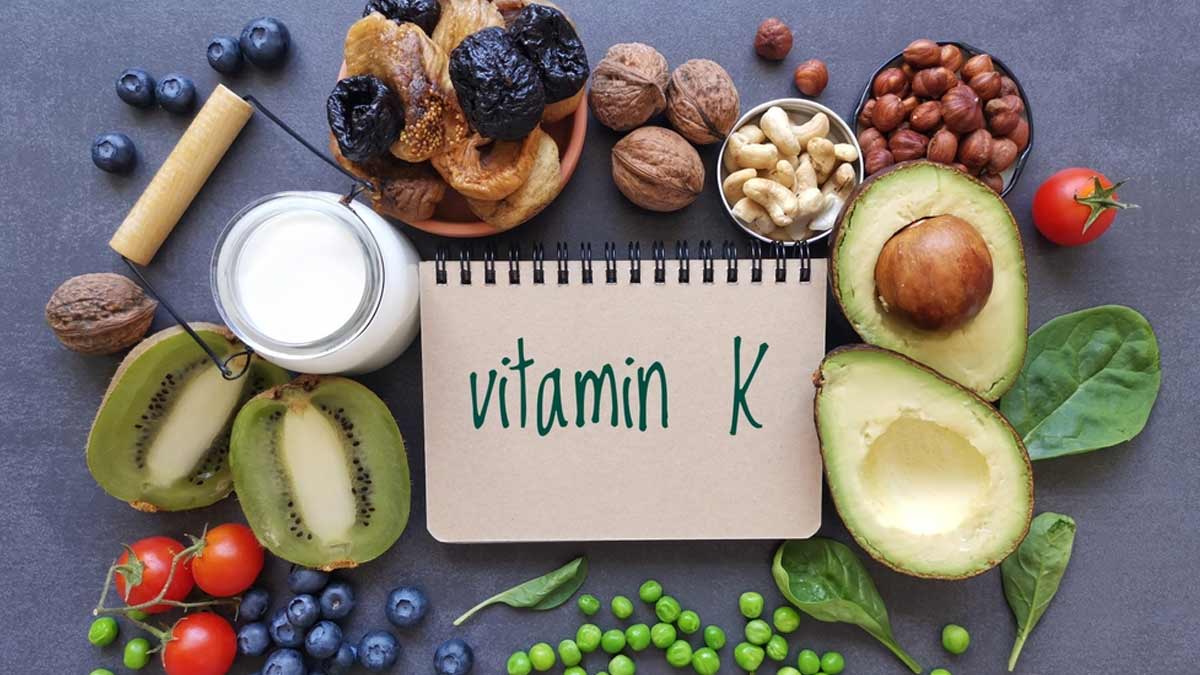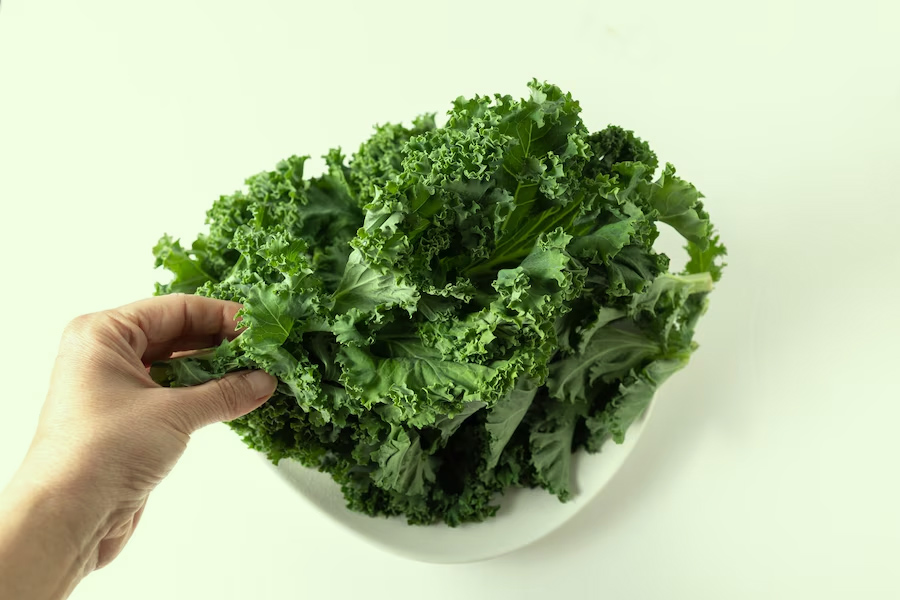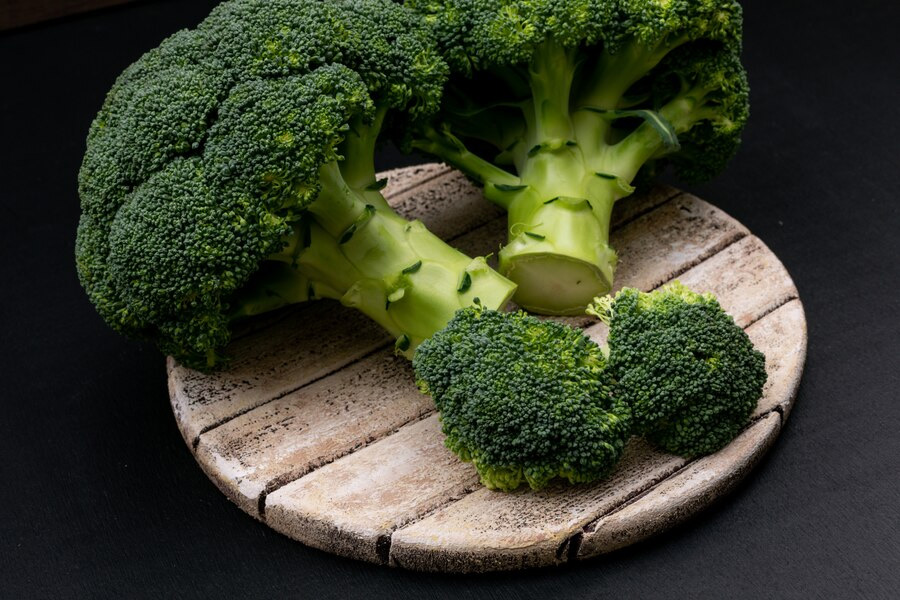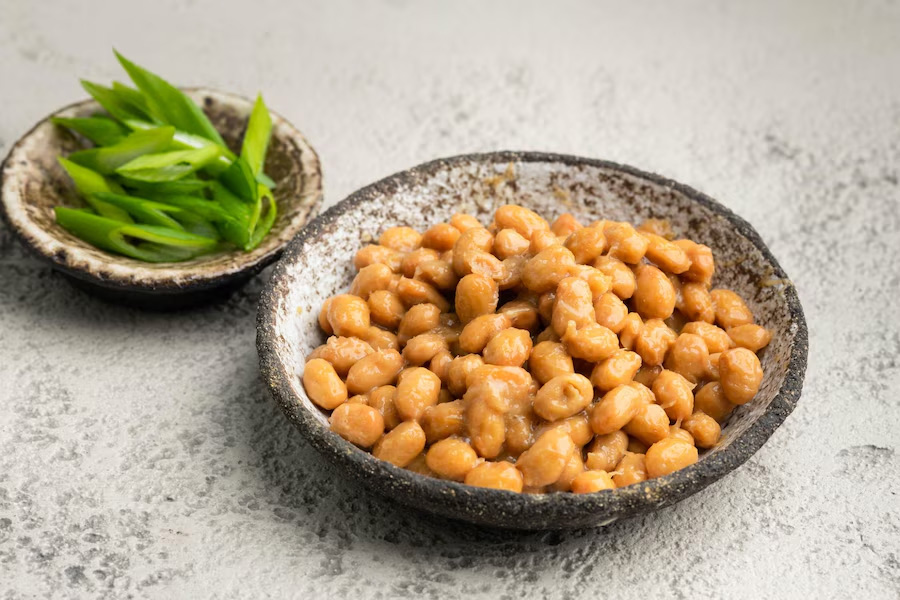
Vitamin K is a fat-soluble vitamin that the body needs to clot blood and help wounds heal easily. It is actually a group of compounds, which include phylloquinone (vitamin K1) and a series of menaquinones (vitamin K2), derived from plants and some animal-based and fermented foods, respectively.
Table of Content:-
According to the Office of Dietary Supplements (ODS) of the National Institutes of Health (NIH), vitamin K plays an important role in maintaining your heart and bone health. In fact, it may reduce a person's risk of osteoporosis, a bone disease that causes bones to become weak and more likely to break, and Coronary Heart Disease (CHD), which occurs when the heart's arteries are blocked or narrowed, reducing blood flow to the heart. Therefore, listed below are some vitamin K-rich foods to strengthen your bones and keep your heart healthy.
Also Read: Vitamin K Is As Important As Other Vitamins, Know Everything About It
Kale![]()
According to the US Department of Agriculture (USDA), one cup, or 130 g, of freshly cooked kale, with no added fat, contains 544 micrograms (mcg) of vitamin K. Kale is a leafy green vegetable that can be eaten raw, steamed, stir-fried, or roasted. In addition to vitamin K, it is also rich in vitamins A, B6, and C, along with fibre, folate, carotenoids, and manganese.
Spinach
Spinach is a widely available vegetable that is known for its high nutritional profile. It is rich in various nutrients, including vitamins A, B, and E, as well as magnesium, folate, and iron. It particularly contains vitamin K, which is great for your bones and your heart health.
The USDA suggests that a bunch, or 340 g, of raw spinach contains 1640 mcg of vitamin K.
Broccoli![]()
Broccoli, which belongs to the cabbage family, is considered an excellent source of vital nutrients, including vitamin C, K, and A. It also contains important minerals, such as potassium, calcium, and iron.
As far as vitamin K is concerned, just half a cup of cooked broccoli contains 110 mcg of vitamin K, or 92% of the Daily Value (DV), according to the Office of Dietary Supplements (ODS) of the National Institutes of Health (NIH).
Also Read: Understanding The Possible Causes Of Blood Clots And How To Lower The Risk
Natto (Fermented Soybeans)![]()
Natto is a popular Japanese cuisine made from fermented soybeans. It is said to be beneficial for gut health and also known to be a powerful source of vitamin K. According to WebMD, one tablespoon of natto contains 150 mcg of vitamin K2, or menaquinones, which is about twice the recommended intake.
Green Beans
If you're someone looking to strengthen your bones and keep your heart in shape, then green beans could be a healthy choice of food as they are rich in vitamin K. According to the USDA, one cup, or 100 g, of green beans provides 43 micrograms of vitamin K, along with 1.83 g of protein, 2.7 g of fibre, and 37 mg of calcium.
How Much Vitamin K Should You Have In A Day?
It is important to remember that for a healthy adult, the recommended daily intake of vitamin K is 120 mcg for men and 90 mcg for women, according to the NIH's ODS. These amounts help support essential functions like blood clotting, bone health, and heart function. While there is no known toxicity for vitamin K from food sources, excessive intake of vitamin K supplements could potentially lead to side effects. These include interference with blood-thinning medications like warfarin and reduced effectiveness of these medications, leading to increased blood clotting risks. It is best to consult a healthcare provider for any advice associated with your health.
Also watch this video
How we keep this article up to date:
We work with experts and keep a close eye on the latest in health and wellness. Whenever there is a new research or helpful information, we update our articles with accurate and useful advice.
Current Version


